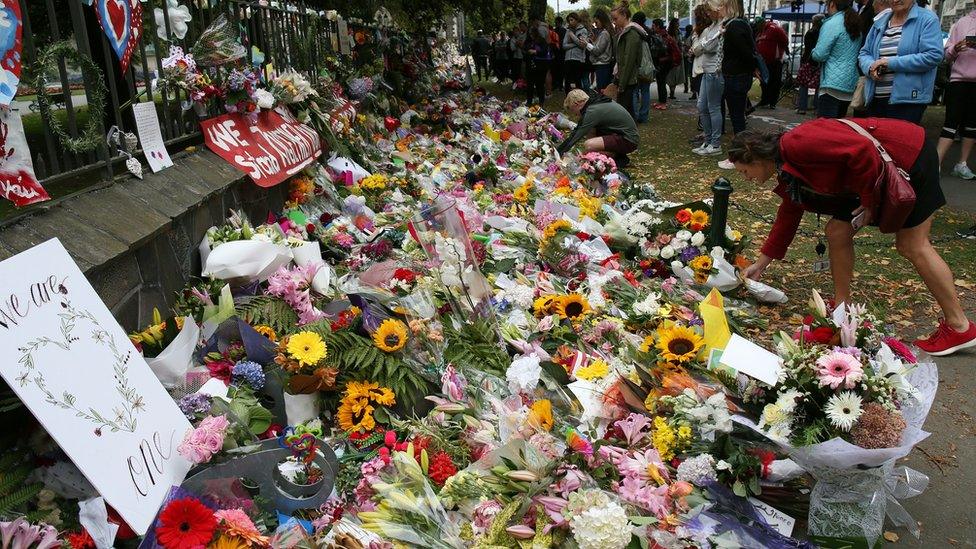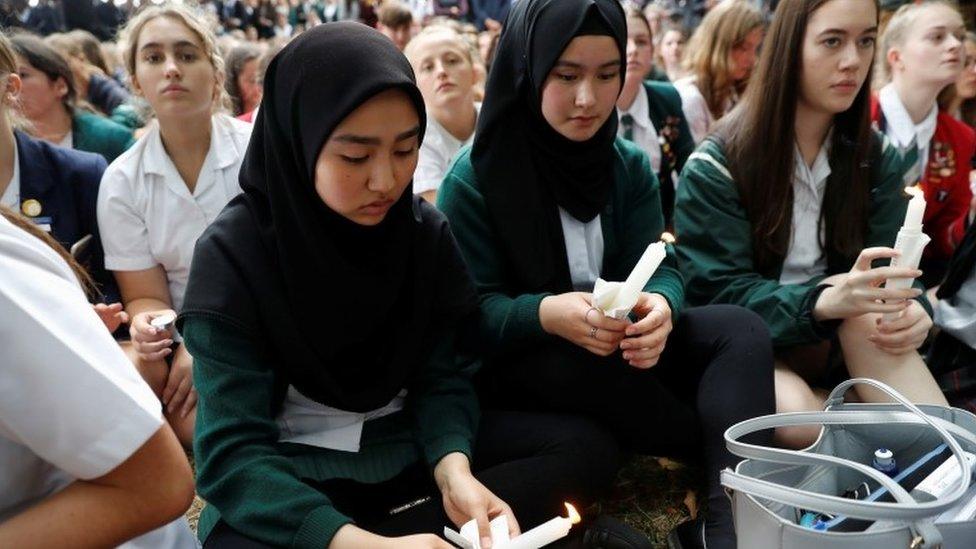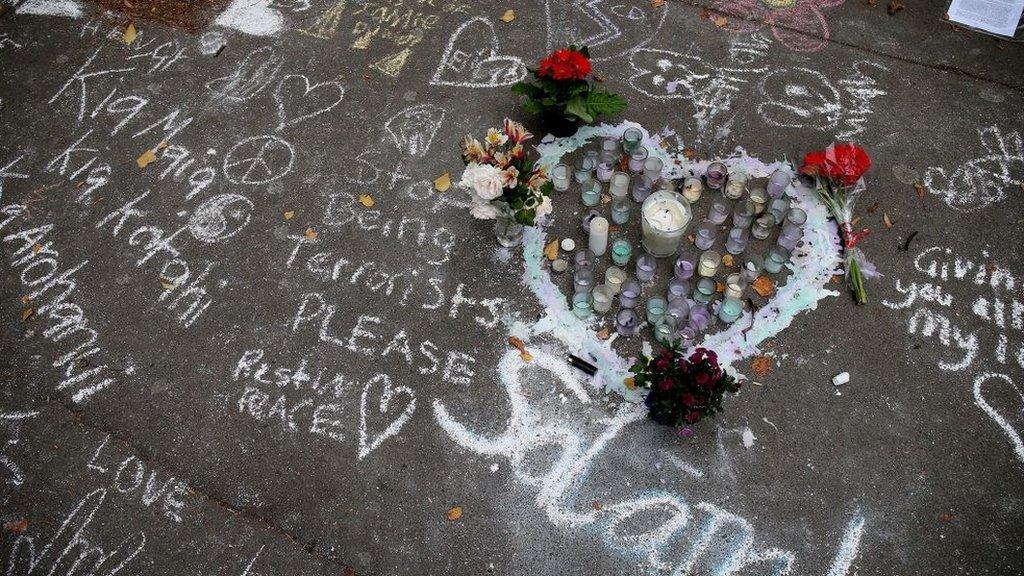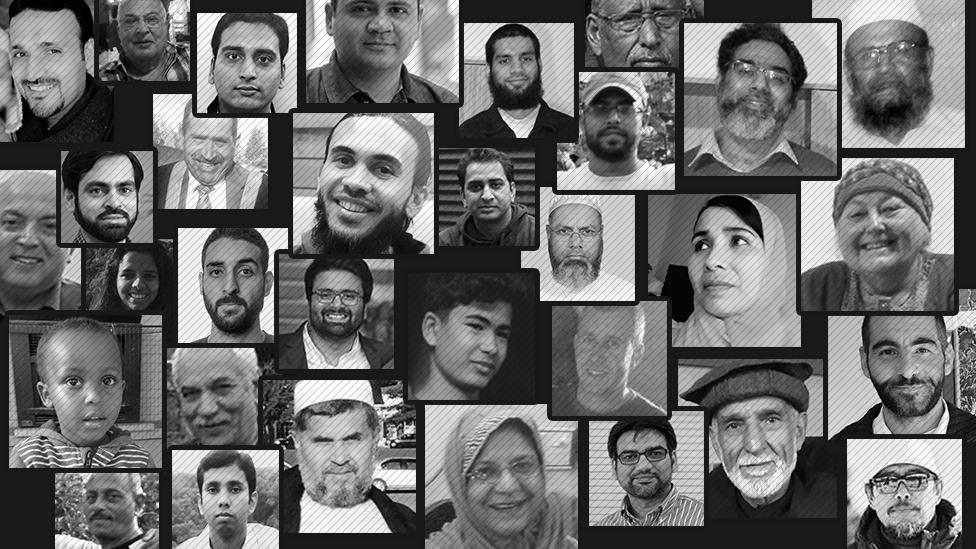Facebook: New Zealand attack video viewed 4,000 times
- Published

A tribute to victims of the Christchurch mosque attacks
The original live video of last week's Christchurch attacks was viewed 4,000 times before it was removed, Facebook has said.
On Friday, a gunman live-streamed for 17 minutes the attack on two mosques that killed 50 people.
Fewer than 200 people had watched it live and the first user report of the video had come 12 minutes after it had ended, Facebook said.
But by then a copy had been placed on alt-right file-sharing site 8chan.
Once alerted to the video, Facebook removed the original and hashed it - essentially made a digital fingerprint - meaning that material that was visibly similar to the original could be automatically detected and removed.
And within 24 hours, it had blocked 1.2 million copies at the point of upload and deleted another 300,000.
However, copies that had been edited or recorded from a screen had proved harder to spot.
It said it was working with the New Zealand Police on its investigation.
"We continue to work around the clock to prevent this content from appearing on our site, using a combination of technology and people," wrote Facebook vice-president Chris Sonderby in an update posted on the platform, external.
'Publisher not postman'
In the wake of the shooting, several world leaders have called on social media companies to take more responsibility for the extremist material posted on their platforms.
New Zealand Prime Minister Jacinda Ardern said social networks were "the publisher not just the postman", in reference to their potential liability for the material shared on them.
Australia's leader, Scott Morrison, expressed concern over the "unrestricted role" of internet technologies in terrorist attacks.
In a letter to Japan's Prime Minister, Shinzo Abe, who also chairs the G20, he asked for the issue to be discussed at the upcoming meeting of the G20.
"It is unacceptable to treat the internet as an ungoverned space," he wrote.
Mr Morrison said the aim was to "agree on co-ordinated action to afford greater protection from terrorist violence".
"It is imperative that the global community works together to ensure that technology firms meet their moral obligation to protect the communities which they serve and from which they profit."
UK Home Secretary Sajid Javid also called on social media firms to take action to stop extremism on their channels.
Analysis: Rory Cellan-Jones, BBC technology correspondent
Facebook seems to have acted pretty swiftly in the circumstances and it is striking that it was an 8chan user who made the video go viral.
But the real question is whether it was sensible to give between two and three billion people instant access to a live broadcasting platform Facebook must have known would be impossible to moderate in real time.
- Published18 March 2019

- Published18 March 2019

- Published21 August 2020
